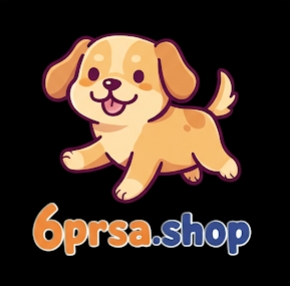The trustworthiness of online resources like Dog Food Advisor is a common concern for pet owners. This article aims to help you navigate the world of dog food reviews, understand the platform’s strengths and weaknesses, and equip you with the knowledge to make informed decisions about your dog’s diet. This article solves 3 problems: 1) Helps to understand Dog Food Advisor’s review process. 2) Provides alternative tools for evaluating dog food. 3) Outlines how to consult with your veterinarian for personalized advice.
Dog Food Advisor (DFA) is a popular website that reviews dog food brands based on ingredient lists, guaranteed analysis, and other factors. The site assigns star ratings to various dog food products, with higher ratings indicating better perceived quality. It’s a valuable resource for many dog owners, but understanding its methodology is crucial before relying solely on its ratings.
The Review Process Explained
DFA’s reviews are based on a detailed analysis of the ingredient list. The first five ingredients carry significant weight in the rating, as they make up the bulk of the food. The site also considers the guaranteed analysis (protein, fat, fiber, moisture) and the presence of potentially controversial ingredients like artificial colors, flavors, and preservatives.
Potential Biases and Limitations
While DFA provides a useful service, it’s essential to recognize its limitations. The reviews are subjective and based on the site owner’s interpretation of ingredient quality and nutritional value. Individual dogs have different needs and sensitivities, so a food rated highly on DFA might not be suitable for every dog.
Determining if Dog Food Advisor is trustworthy requires looking at its transparency, expertise, and potential biases. A balanced approach is always recommended when using any online resource for pet care.
Transparency and Disclosure
DFA is generally transparent about its review process, but it is important to note that the site is owned by a single individual, a dentist with an interest in pet nutrition. This doesn’t automatically discredit the site, but it’s a factor to consider.
Credentials and Expertise
While the owner has dedicated considerable time to researching dog food, he isn’t a veterinarian or a board-certified veterinary nutritionist. Therefore, the information provided should be considered a starting point for research, not a substitute for professional veterinary advice.
Conflicts of Interest
It’s crucial to ascertain if DFA has any hidden financial incentives from specific dog food brands. Investigate if the website prominently discloses its advertising relationships. Transparency regarding these associations is key to assessing the site’s impartiality.
Relying on a single source for information about your dog’s diet is never a good idea. Explore these alternative evaluation methods to get a more comprehensive understanding.
Consulting with Your Veterinarian
Your veterinarian is the best resource for determining your dog’s specific dietary needs. They can assess your dog’s health, age, breed, activity level, and any underlying medical conditions to recommend the most appropriate food.
Reading Ingredient Labels Carefully
Learn to decipher ingredient labels and understand what each ingredient contributes to your dog’s diet. Look for foods with identifiable protein sources, whole grains (if appropriate), and minimal fillers and artificial additives.
Understanding Guaranteed Analysis
The guaranteed analysis provides information on the protein, fat, fiber, and moisture content of the food. Consider this information in relation to your dog’s specific needs. For example, a highly active dog may need a food with a higher fat content.
Researching Brands and Manufacturers
Investigate the reputation and manufacturing practices of different dog food brands. Look for brands that conduct feeding trials and have a strong commitment to quality control.
Having owned dogs for over 20 years, I’ve learned that finding the right food is often a process of trial and error. I’ve relied on websites like Dog Food Advisor in the past, but I now prioritize consulting with my vet and carefully reading ingredient labels. I’ve found that a food that works well for one of my dogs might not be suitable for another, even within the same breed.
A Cautionary Tale
I once switched to a highly-rated food based solely on DFA’s recommendation, and my dog developed digestive issues. This experience taught me the importance of considering individual needs and seeking professional advice. Now, I view DFA as a helpful starting point but not the final word.
The Importance of Observation
Pay close attention to your dog’s response to any new food. Look for changes in their energy levels, coat condition, stool quality, and overall health. These observations can provide valuable insights into whether a food is truly working for your dog.
Instead of blindly following ratings, take these proactive steps to find the best food for your furry friend.
- Schedule a consultation with your veterinarian. Discuss your dog’s specific needs and get their recommendations.
- Research different dog food brands. Look for companies with a strong commitment to quality and transparency.
- Read ingredient labels carefully. Prioritize whole, identifiable ingredients and avoid excessive fillers and additives.
- Monitor your dog’s response to the food. Look for signs of improved health and well-being.
- Be prepared to adjust the diet as needed. Your dog’s needs may change over time, so stay flexible and responsive.
Dog Food Advisor can be a useful resource for dog owners, but it’s essential to approach its ratings with a critical eye. Consider it as one piece of the puzzle, alongside veterinary advice, ingredient label analysis, and careful observation of your dog’s health and well-being. By taking a holistic approach, you can make informed decisions that support your dog’s optimal health and longevity.
Ultimately, the best dog food is the one that meets your individual dog’s specific needs and keeps them happy and healthy.
html
Our goal is to change how pet foods are made and marketed … and that starts with education. Our Advisory Board includes a PhD veterinarian who taught nutrition to vet students, a PhD food scientist and formulator, a PhD veterinarian and herbalist, and a veterinarian who’s a nutrition expert and advisor to AAFCO, the organization that sets standards for pet food production. We’ve brought the best and brightest minds together to help investigate the foods you feed your furry family member.

